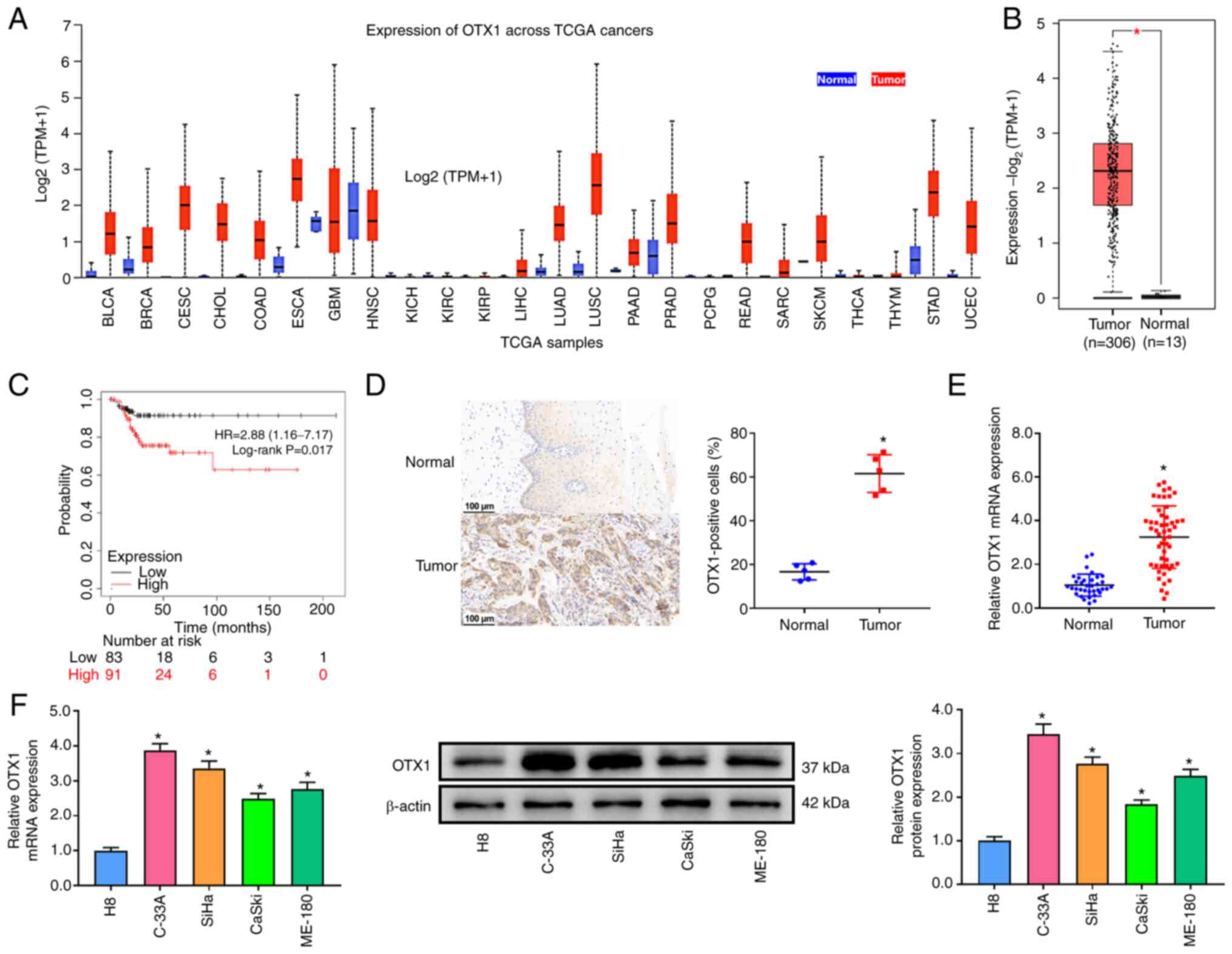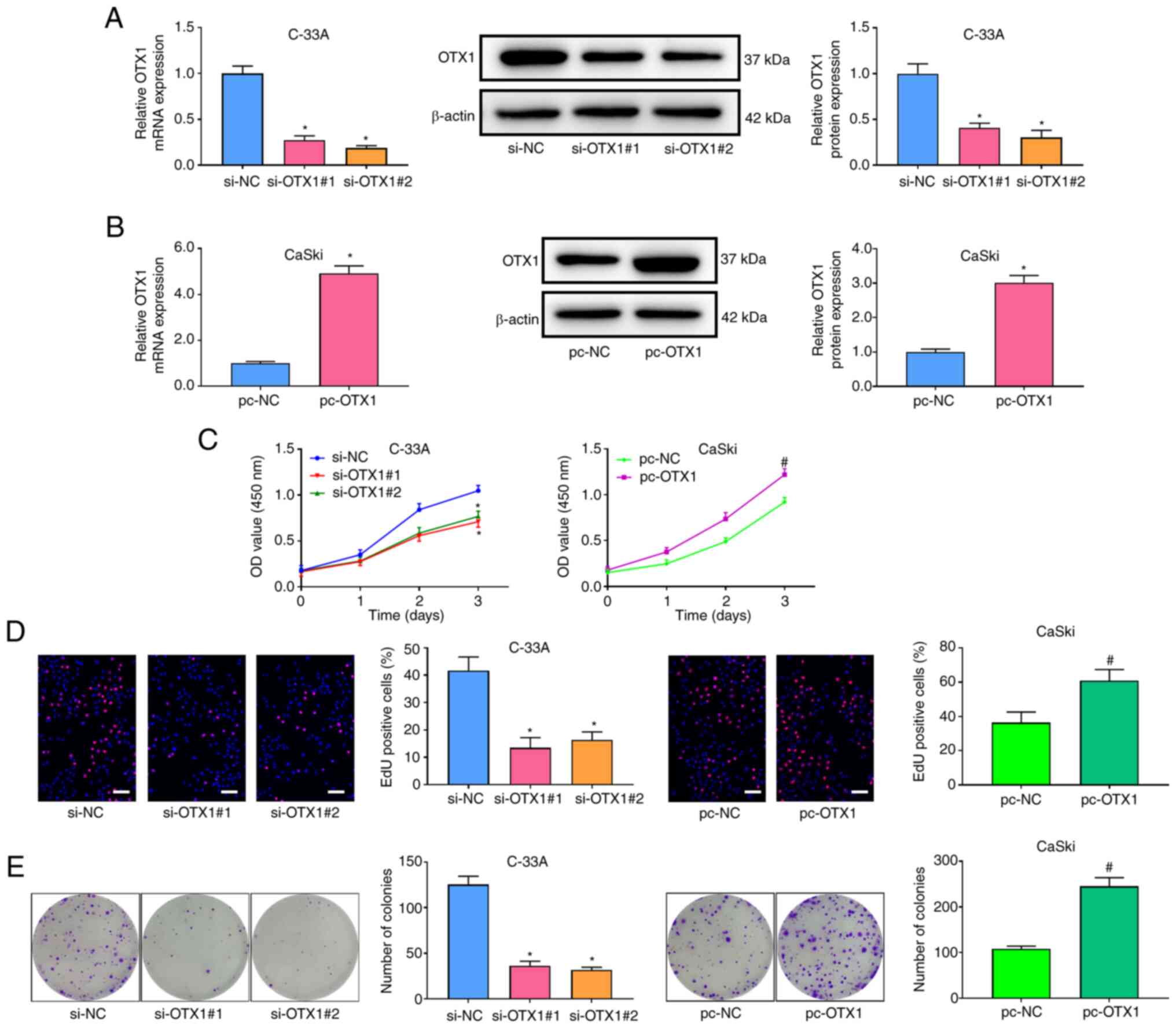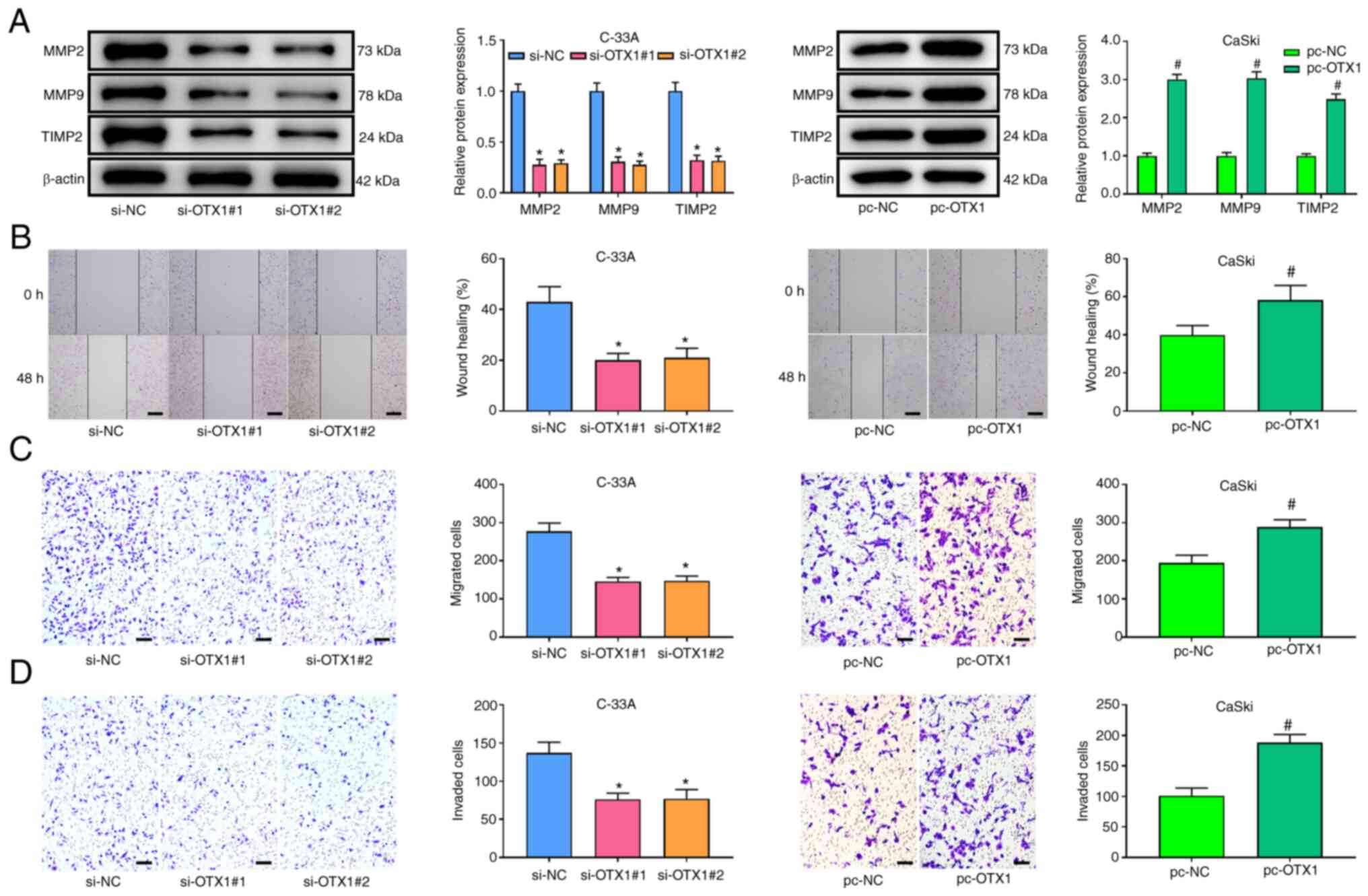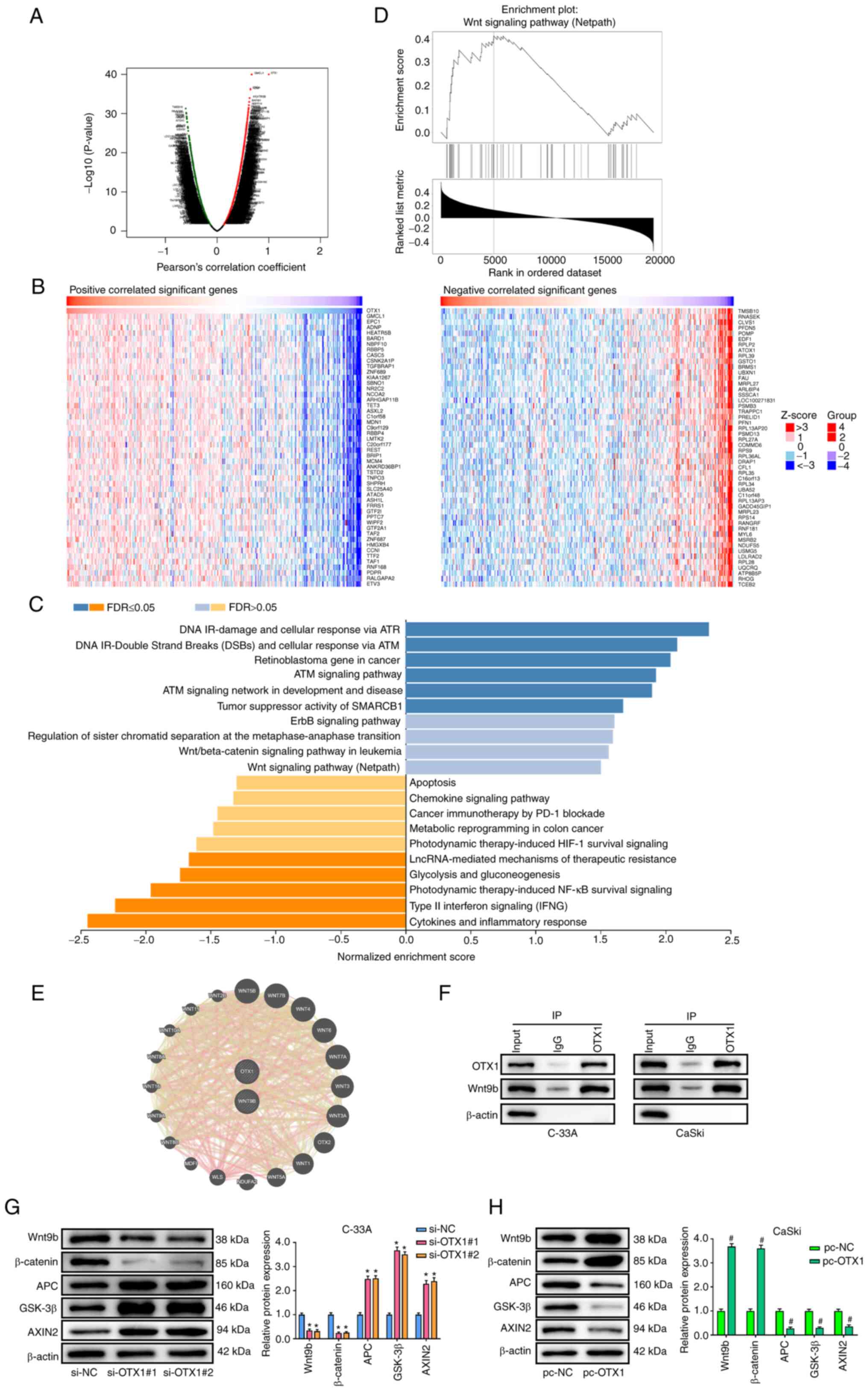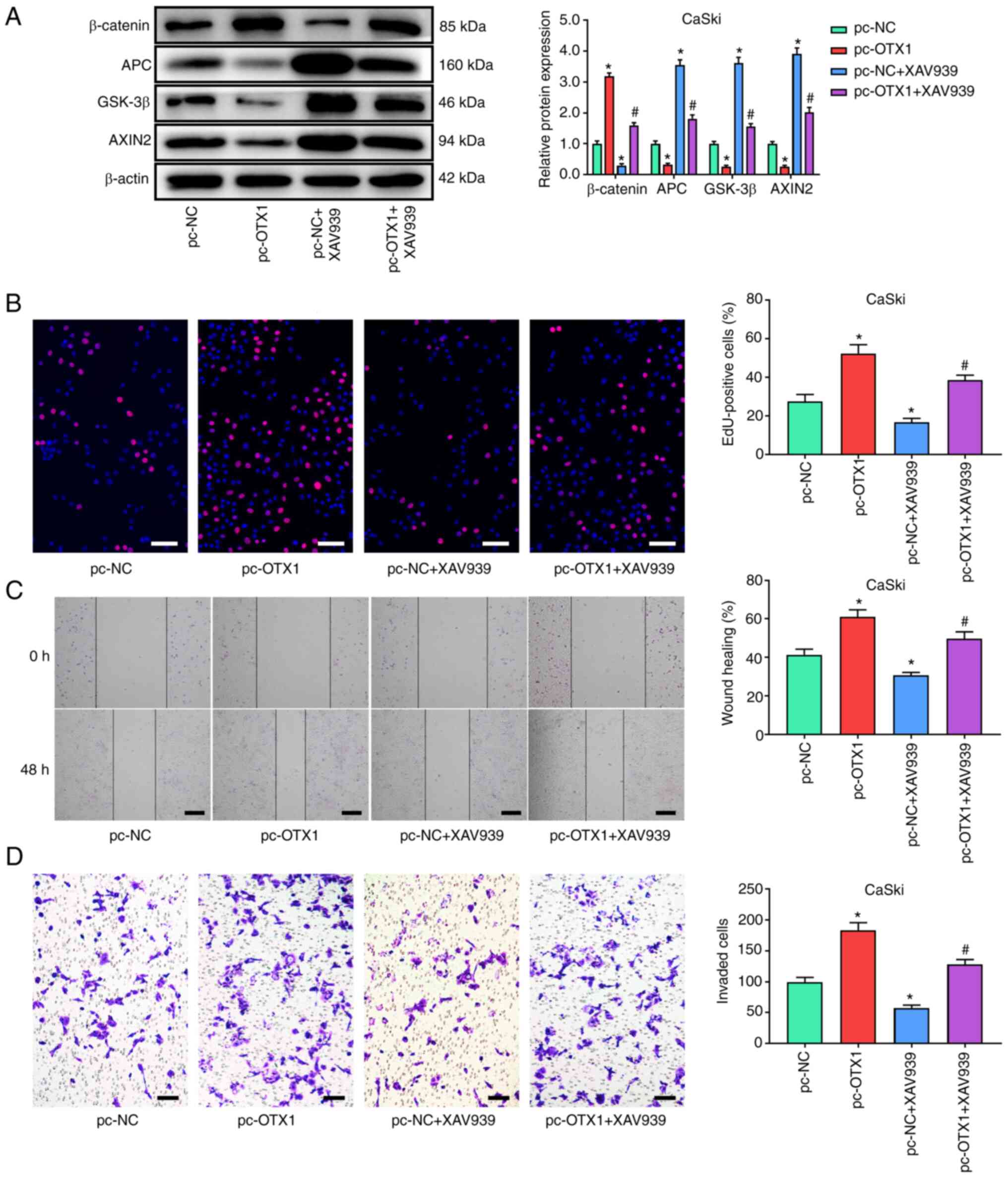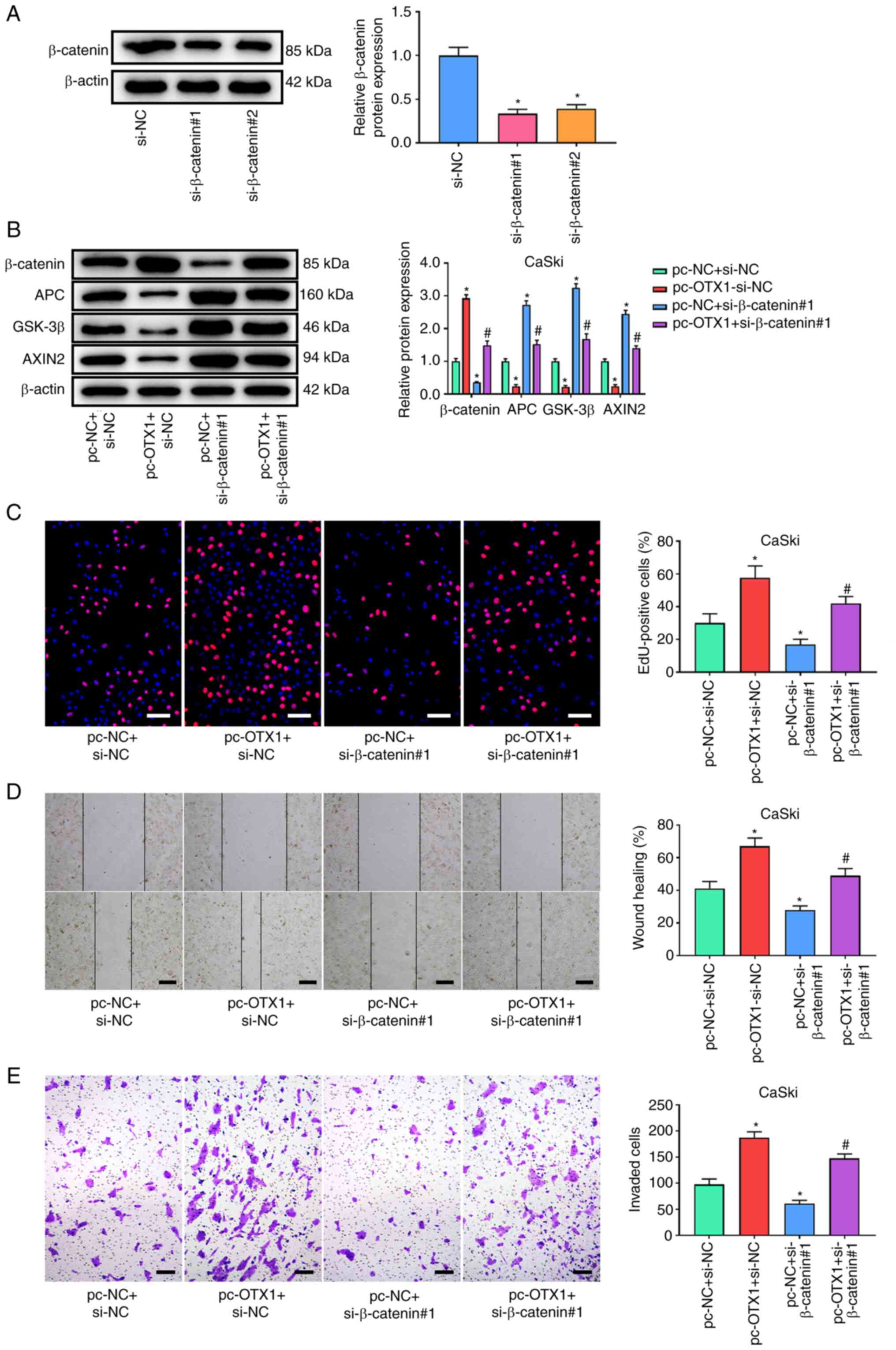|
1
|
Revathidevi S, Murugan AK, Nakaoka H,
Inoue I and Munirajan AK: APOBEC: A molecular driver in cervical
cancer pathogenesis. Cancer Lett. 496:104–116. 2021. View Article : Google Scholar : PubMed/NCBI
|
|
2
|
Venkatas J and Singh M: Cervical cancer: A
meta-analysis, therapy and future of nanomedicine.
Ecancermedicalscience. 14:11112020.PubMed/NCBI
|
|
3
|
Bray F, Ferlay J, Soerjomataram I, Siegel
RL, Torre LA and Jemal A: Global cancer statistics 2018: GLOBOCAN
estimates of incidence and mortality worldwide for 36 cancers in
185 countries. CA Cancer J Clin. 68:394–424. 2018. View Article : Google Scholar : PubMed/NCBI
|
|
4
|
Valstar MH, de Bakker BS, Steenbakkers
RJHM, de Jong KH, Smit LA, Klein Nulent TJW, van Es RJJ, Hofland I,
de Keizer B, Jasperse B, et al: The tubarial salivary glands: A
potential new organ at risk for radiotherapy. Radiother Oncol.
154:292–298. 2021. View Article : Google Scholar : PubMed/NCBI
|
|
5
|
Benson R, Pathy S, Kumar L, Mathur S,
Dadhwal V and Mohanti BK: Locally advanced cervical
cancer-neoadjuvant chemotherapy followed by concurrent
chemoradiation and targeted therapy as maintenance: A phase II
study. J Cancer Res Ther. 15:1359–1364. 2019. View Article : Google Scholar : PubMed/NCBI
|
|
6
|
Chen FY, Zhou ZY, Zhang KJ, Pang J and
Wang SM: Long non-coding RNA MIR100HG promotes the migration,
invasion and proliferation of triple-negative breast cancer cells
by targeting the miR-5590-3p/OTX1 axis. Cancer Cell Int.
20:5082020. View Article : Google Scholar : PubMed/NCBI
|
|
7
|
Bovio PP, Franz H, Heidrich S, Rauleac T,
Kilpert F, Manke T and Vogel T: Differential methylation of H3K79
reveals DOT1L target genes and function in the cerebellum in vivo.
Mol Neurobiol. 56:4273–4287. 2019. View Article : Google Scholar : PubMed/NCBI
|
|
8
|
Chen S, Xu M, Zhao J, Shen J, Li J, Liu Y,
Cao G, Ma J, He W, Chen X and Shan T: MicroRNA-4516 suppresses
pancreatic cancer development via negatively regulating
orthodenticle homeobox 1. Int J Biol Sci. 16:2159–2169. 2020.
View Article : Google Scholar : PubMed/NCBI
|
|
9
|
Tu XP, Li H, Chen LS, Luo XN, Lu ZM, Zhang
SY and Chen SH: OTX1 exerts an oncogenic role and is negatively
regulated by miR129-5p in laryngeal squamous cell carcinoma. BMC
Cancer. 20:7942020. View Article : Google Scholar : PubMed/NCBI
|
|
10
|
Chen G, Wan J, Wang Z, Li L, Jia H, Xing
S, Chen S, Fan X and Li R: miR-3196 acts as a tumor suppressor and
predicts survival outcomes in patients with gastric cancer. Technol
Cancer Res Treat. 19:15330338209234272020. View Article : Google Scholar : PubMed/NCBI
|
|
11
|
Li J, Zhao LM, Zhang C, Li M, Gao B, Hu
XH, Cao J and Wang GY: The lncRNA FEZF1-AS1 promotes the
progression of colorectal cancer through regulating OTX1 and
targeting miR-30a-5p. Oncol Res. 28:51–63. 2020. View Article : Google Scholar : PubMed/NCBI
|
|
12
|
Hu ZQ, Li HC, Teng F, Chang QM, Wu XB,
Feng JF and Zhang ZP: Long noncoding RNA MAFG-AS1 facilitates the
progression of hepatocellular carcinoma via targeting miR-3196/OTX1
axis. Eur Rev Med Pharmacol Sci. 24:12131–12143. 2020.PubMed/NCBI
|
|
13
|
Jiang L, Zuo Z, Lin J and Yang C:
Orthodenticle homeobox OTX1 is a potential prognostic biomarker for
bladder cancer. Bioengineered. 12:6559–6571. 2021. View Article : Google Scholar : PubMed/NCBI
|
|
14
|
Lu Y: miR-223-5p suppresses OTX1 to
mediate malignant progression of lung squamous cell carcinoma
cells. Comput Math Methods Med. 2021:62487932021. View Article : Google Scholar : PubMed/NCBI
|
|
15
|
Livak KJ and Schmittgen TD: Analysis of
relative gene expression data using real-time quantitative PCR and
the 2(−Delta Delta C(T)) method. Methods. 25:402–408. 2001.
View Article : Google Scholar : PubMed/NCBI
|
|
16
|
Vasaikar SV, Straub P, Wang J and Zhang B:
LinkedOmics: Analyzing multi-omics data within and across 32 cancer
types. Nucleic Acids Res. 46(D1): D956–D963. 2018. View Article : Google Scholar : PubMed/NCBI
|
|
17
|
Nagy Á, Munkácsy G and Győrffy B:
Pancancer survival analysis of cancer hallmark genes. bioRxiv.
2020.2011.2013.381442. 2020.
|
|
18
|
Bachmeier BE, Nerlich AG, Lichtinghagen R
and Sommerhoff CP: Matrix metalloproteinases (MMPs) in breast
cancer cell lines of different tumorigenicity. Anticancer Res.
21:3821–3828. 2001.PubMed/NCBI
|
|
19
|
Linder S: The matrix corroded: Podosomes
and invadopodia in extracellular matrix degradation. Trends Cell
Biol. 17:107–117. 2007. View Article : Google Scholar : PubMed/NCBI
|
|
20
|
Fietz S, Einspanier R, Hoppner S, Hertsch
B and Bondzio A: Determination of MMP-2 and −9 activities in
synovial fluid of horses with osteoarthritic and arthritic joint
diseases using gelatin zymography and immunocapture activity
assays. Equine Vet J. 40:266–271. 2008. View Article : Google Scholar : PubMed/NCBI
|
|
21
|
Srivastava P, Lone TA, Kapoor R and Mittal
RD: Association of promoter polymorphisms in MMP2 and TIMP2 with
prostate cancer susceptibility in North India. Arch Med Res.
43:117–124. 2012. View Article : Google Scholar : PubMed/NCBI
|
|
22
|
Sridhar A, Hoshino A, Finkbeiner CR,
Chitsazan A, Dai L, Haugan AK, Eschenbacher KM, Jackson DL,
Trapnell C, Bermingham-McDonogh O, et al: Single-cell
transcriptomic comparison of human fetal retina, hPSC-derived
retinal organoids, and long-term retinal cultures. Cell Rep.
30:1644–1659.e4. 2020. View Article : Google Scholar : PubMed/NCBI
|
|
23
|
Yang J, Wu W, Wu M and Ding J: Long
noncoding RNA ADPGK-AS1 promotes cell proliferation, migration, and
EMT process through regulating miR-3196/OTX1 axis in breast cancer.
In Vitro Cell Dev Biol Anim. 55:522–532. 2019. View Article : Google Scholar : PubMed/NCBI
|
|
24
|
Yang XZ, Cheng TT, He QJ, Lei ZY, Chi J,
Tang Z, Liao QX, Zhang H, Zeng LS and Cui SZ: LINC01133 as ceRNA
inhibits gastric cancer progression by sponging miR-106a-3p to
regulate APC expression and the Wnt/β-catenin pathway. Mol Cancer.
17:1262018. View Article : Google Scholar : PubMed/NCBI
|
|
25
|
Zhang Y and Wang X: Targeting the
Wnt/β-catenin signaling pathway in cancer. J Hematol Oncol.
13:1652020. View Article : Google Scholar : PubMed/NCBI
|
|
26
|
Deng R, Zuo C, Li Y, Xue B, Xun Z, Guo Y,
Wang X, Xu Y, Tian R, Chen S, et al: The innate immune effector
ISG12a promotes cancer immunity by suppressing the canonical
Wnt/β-catenin signaling pathway. Cell Mol Immunol. 17:1163–1179.
2020. View Article : Google Scholar : PubMed/NCBI
|
|
27
|
Chen LJ, Wu L, Wang W, Zhai LL, Xiang F,
Li WB and Tang ZG: Long non-coding RNA 01614 hyperactivates
WNT/β-catenin signaling to promote pancreatic cancer progression by
suppressing GSK-3β. Int J Oncol. 61:1162022. View Article : Google Scholar : PubMed/NCBI
|
|
28
|
Shu X, Chen M, Liu SY, Yu L, Sun LX, Sun
LC and Ran YL: Palladin promotes cancer stem cell-like properties
in lung cancer by activating Wnt/Β-Catenin signaling. Cancer Med.
Sep 1–2022.(Epub ahead of print). View Article : Google Scholar
|
|
29
|
Zhang J, Shen Q, Xia L and Zhu X: DYNLT3
overexpression induces apoptosis and inhibits cell growth and
migration via inhibition of the Wnt pathway and EMT in cervical
cancer. Front Oncol. 12:8892382022. View Article : Google Scholar : PubMed/NCBI
|
|
30
|
Liu X, Shen X and Zhang J: TRIP13 exerts a
cancer-promoting role in cervical cancer by enhancing Wnt/β-catenin
signaling via ACTN4. Environ Toxicol. 36:1829–1840. 2021.
View Article : Google Scholar : PubMed/NCBI
|
|
31
|
Feng Q, Li S, Ma HM, Yang WT and Zheng PS:
LGR6 activates the Wnt/β-catenin signaling pathway and forms a
β-catenin/LGR6 activates the Wnt/β-catenin signaling pathway and
forms a β-catenin/TCF7L2/LGR6 feedback loop in LGR6high
cervical cancer stem cells. Oncogene. 40:6103–6114. 2021.
View Article : Google Scholar : PubMed/NCBI
|
|
32
|
Hsu W, Liu L, Chen X, Zhang Y and Zhu W:
LncRNA CASC11 promotes the cervical cancer progression by
activating Wnt/beta-catenin signaling pathway. Biol Res. 52:332019.
View Article : Google Scholar : PubMed/NCBI
|
|
33
|
Hu W, Li M, Chen Y and Gu X: UBE2S
promotes the progression and Olaparib resistance of ovarian cancer
through Wnt/β-catenin signaling pathway. J Ovarian Res. 14:1212021.
View Article : Google Scholar : PubMed/NCBI
|
|
34
|
Zhang M, Shi J, Huang Y and Lai L:
Expression of canonical WNT/β-catenin signaling components in the
developing human lung. BMC Dev Biol. 12:212012. View Article : Google Scholar : PubMed/NCBI
|
|
35
|
Zhao J, Xiang C, Zhao R, Guo P, Zheng J,
Han-Zhang H, Yu K, Zhang J and Han Y: Clinicopathologic features
and genomic analysis of pulmonary blastomatoid carcinosarcoma. BMC
Cancer. 20:2482020. View Article : Google Scholar : PubMed/NCBI
|
|
36
|
Cho YH, Ro EJ, Yoon JS, Mizutani T, Kang
DW, Park JC, Il Kim T, Clevers H and Choi KY: 5-FU promotes
stemness of colorectal cancer via p53-mediated WNT/β-catenin
pathway activation. Nat Commun. 11:53212020. View Article : Google Scholar : PubMed/NCBI
|
|
37
|
Cho SG: APC downregulated 1 inhibits
breast cancer cell invasion by inhibiting the canonical WNT
signaling pathway. Oncol Lett. 14:4845–4852. 2017. View Article : Google Scholar : PubMed/NCBI
|
|
38
|
Goñi FJ, Peña-Oyarzún D, Torres VA and
Reyes M: Expression profile of components of the β-catenin
destruction complex in oral dysplasia and oral cancer. Med Oral
Patol Oral Cir Bucal. 26:e729–e737. 2021. View Article : Google Scholar : PubMed/NCBI
|
|
39
|
Katoh M: Multi-layered prevention and
treatment of chronic inflammation, organ fibrosis and cancer
associated with canonical WNT/β-catenin signaling activation
(review). Int J Mol Med. 42:713–725. 2018.PubMed/NCBI
|
|
40
|
Jho EH, Zhang T, Domon C, Joo CK, Freund
JN and Costantini F: Wnt/beta-catenin/Tcf signaling induces the
transcription of Axin2, a negative regulator of the signaling
pathway. Mol Cell Biol. 22:1172–1183. 2002. View Article : Google Scholar : PubMed/NCBI
|
|
41
|
Noe O, Filipiak L, Royfman R, Campbell A,
Lin L, Hamouda D, Stanbery L and Nemunaitis J: Adenomatous
polyposis coli in cancer and therapeutic implications. Oncol Rev.
15:5342021. View Article : Google Scholar : PubMed/NCBI
|















